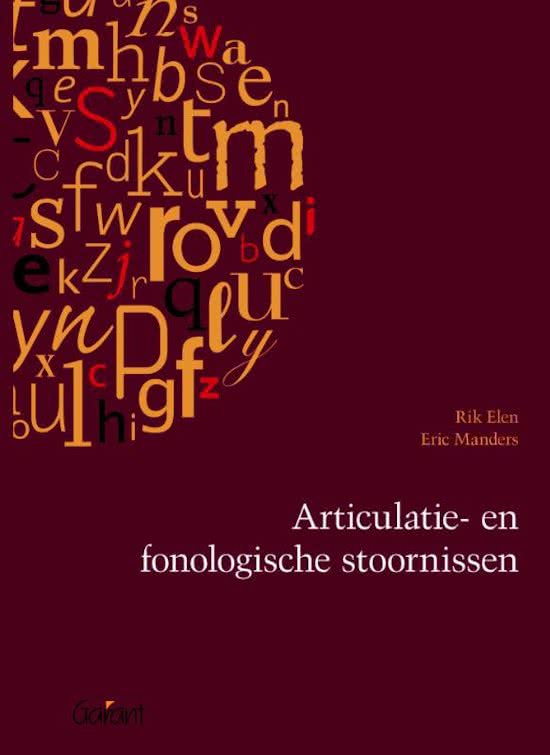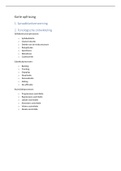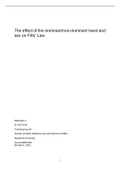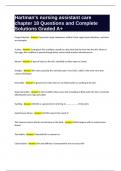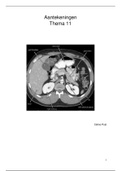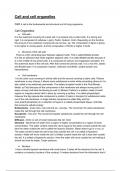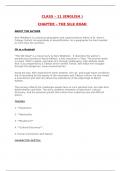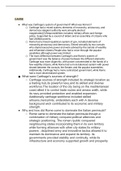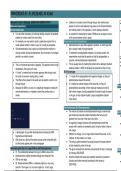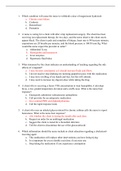Korte opfrissing
1. Spraakklankverwerving
2. Fonologische ontwikkeling
Syllabestructuurprocessen:
o Syllabedeletie
o Clusterreductie
o Deletie van de eindconsonant
o Reduplicatie
o Epenthesis
o Metathesis
o Coalescentie
Substitutiprocessen:
o Backing
o Fronting
o Stopping
o Nasalisatie
o Denasalisatie
o Gliding
o De-affricatie
Assimilatieprocessen:
o Progressieve assimilatie
o Regressieve assimilatie
o Labiale assimilatie
o Alveolaire assimilatie
o Velaire assimilatie
o Nasale assimilatie
,Fenomenologie SKS
1. Definitie, prevalentie en incidentie SKS
Articulatiestoornis = probleem met het produceren van spraakklanken
(articulatiebewegingen benaderen niet de normale doelpositie)
Fonologische stoornis = probleem met het correct toepassen van regels
Articulatie- en fonetische stoornissen spraakklankstoornissen
Om aan te geven dat kinderen problemen hebben met het correct gebruiken van leeftijdsgeschikte
SK in zijn taal.
Gradaties in de spraakverstaanbaarheid.
Law et al. (2000):
o 2-15% afhankelijk van de leeftijd
Verschillen:
o SKS dalen met toenemende leeftijd
o Verschillende wijze van identificatie
Waren & Knight (2013), Farquharson (2015):
o 10 tot 15% (peuters/ kleuters)
o 6% (lagere school kinderen)
Stes (1997):
o 15-20% op 6-7 jaar
o 4% boven 11 jaar
o 1% boven 17 jaar
, 2. Ziekte- en leermodel als verklaring
Wat is (en vanaf wanneer) afwijkend? Wat is normaal?
Welke criteria?
Ziektemodel: alles wat afwijkt van de norm is verstoord/ symptoom
o EU > medische discipline > logopedische stoornissen & SKS ‘aandoeningen tgv organische
afwijkingen’
o Visie = eerst oorzaak wegnemen vooraleer afwijkend gedrag aanpakken
o Duidelijk(er) voor SKS ten gevolge van lip- en/of gehemeltespleet, neurologische
aandoeningen
Leermodel: ander uitgangspunt, vage grens tussen normaal en afwijkend
o Normaal & afwijkend articuleren = geleerd gedrag
o Sociaal culturele normen:
vb. lichte mate van lispelen is niet afwijkend
andere normen voor presentator dan voor …
Ziekte- en leermodel zijn complementair, ze vullen elkaar aan
o SKS met organische oorzaak
ook leerprocessen spelen een rol
omgaan met de stoornis
aanpassen aan de stoornis
3. Indeling SKS
Geen universeel classificatiesysteem
Wel theoretisch van elkaar verschillende classificatiesystemen op basis van:
o Etiologie, medische diagnose
o Linguïstische beschrijving
o Psycholinguïstisch framework
4 grote categorieën:
o Dyslalieën
functionele SKS
grootste groep (75-80%) geen duidelijke etiologie
oorzaak: foutief/ niet/ onvoldoende leren
o Dysglossieën
afwijking thv articulatieorganen
o Spraakapraxieën
programmeringsstoornis
aangeboren of verworven
zeldzaam probleem met willekeurig uitvoeren van articulatiebewegingen tgv hersenletsel
o Dysartrieën
probleem ter hoogte van bezenuwing/ aansturing van articulatoren
o Dysaudie
1. Spraakklankverwerving
2. Fonologische ontwikkeling
Syllabestructuurprocessen:
o Syllabedeletie
o Clusterreductie
o Deletie van de eindconsonant
o Reduplicatie
o Epenthesis
o Metathesis
o Coalescentie
Substitutiprocessen:
o Backing
o Fronting
o Stopping
o Nasalisatie
o Denasalisatie
o Gliding
o De-affricatie
Assimilatieprocessen:
o Progressieve assimilatie
o Regressieve assimilatie
o Labiale assimilatie
o Alveolaire assimilatie
o Velaire assimilatie
o Nasale assimilatie
,Fenomenologie SKS
1. Definitie, prevalentie en incidentie SKS
Articulatiestoornis = probleem met het produceren van spraakklanken
(articulatiebewegingen benaderen niet de normale doelpositie)
Fonologische stoornis = probleem met het correct toepassen van regels
Articulatie- en fonetische stoornissen spraakklankstoornissen
Om aan te geven dat kinderen problemen hebben met het correct gebruiken van leeftijdsgeschikte
SK in zijn taal.
Gradaties in de spraakverstaanbaarheid.
Law et al. (2000):
o 2-15% afhankelijk van de leeftijd
Verschillen:
o SKS dalen met toenemende leeftijd
o Verschillende wijze van identificatie
Waren & Knight (2013), Farquharson (2015):
o 10 tot 15% (peuters/ kleuters)
o 6% (lagere school kinderen)
Stes (1997):
o 15-20% op 6-7 jaar
o 4% boven 11 jaar
o 1% boven 17 jaar
, 2. Ziekte- en leermodel als verklaring
Wat is (en vanaf wanneer) afwijkend? Wat is normaal?
Welke criteria?
Ziektemodel: alles wat afwijkt van de norm is verstoord/ symptoom
o EU > medische discipline > logopedische stoornissen & SKS ‘aandoeningen tgv organische
afwijkingen’
o Visie = eerst oorzaak wegnemen vooraleer afwijkend gedrag aanpakken
o Duidelijk(er) voor SKS ten gevolge van lip- en/of gehemeltespleet, neurologische
aandoeningen
Leermodel: ander uitgangspunt, vage grens tussen normaal en afwijkend
o Normaal & afwijkend articuleren = geleerd gedrag
o Sociaal culturele normen:
vb. lichte mate van lispelen is niet afwijkend
andere normen voor presentator dan voor …
Ziekte- en leermodel zijn complementair, ze vullen elkaar aan
o SKS met organische oorzaak
ook leerprocessen spelen een rol
omgaan met de stoornis
aanpassen aan de stoornis
3. Indeling SKS
Geen universeel classificatiesysteem
Wel theoretisch van elkaar verschillende classificatiesystemen op basis van:
o Etiologie, medische diagnose
o Linguïstische beschrijving
o Psycholinguïstisch framework
4 grote categorieën:
o Dyslalieën
functionele SKS
grootste groep (75-80%) geen duidelijke etiologie
oorzaak: foutief/ niet/ onvoldoende leren
o Dysglossieën
afwijking thv articulatieorganen
o Spraakapraxieën
programmeringsstoornis
aangeboren of verworven
zeldzaam probleem met willekeurig uitvoeren van articulatiebewegingen tgv hersenletsel
o Dysartrieën
probleem ter hoogte van bezenuwing/ aansturing van articulatoren
o Dysaudie

